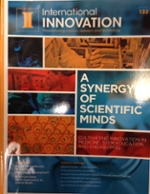
What does the sequester mean for Emory? Simply put, the sequester translates into a 5 percent reduction in federal grants and a 2 percent reduction in total Medicare payments. Overall, Emory received nearly $350 million in federal research dollars in fiscal year 2012. Last year, 24 federal agencies, including the National Institutes of Health, Centers for Disease Control, the National Science Foundation and the National Endowment for the Humanities, partnered with Emory researchers. With a 5 percent cut to last year's federal research funding level, Emory loses $17.5 million. 
Ray opines on the lab's efforts to achieve a greater understanding, and improved treatment, of epilepsy and brain injury 
Emory Chemistry Biology Center
The National Institutes of Health (NIH) awarded nearly $9 million to Emory University as part of a nationwide research network of nine centers that will use high-tech screening methods to identify small molecules that can be used as research tools. By screening promising molecular targets against thousands of small molecule compounds, the Molecular Libraries Screening Centers (MLSC) will give scientists more information about key biological processes involved in human health and disease. Raymond Dingledine, PhD, professor and chair of pharmacology in Emory University School of Medicine, .was principal investigator for Emory's MLSC. 
New studies by a research team at Emory University School of Medicine show that diet alters genes involved in energy metabolism in the brain, which in turn helps stabilize the function of neurons exposed to the challenges of epileptic seizures. This knowledge could help scientists identify specific molecular or genetic targets and lead to more effective drug treatments for epilepsy and brain damage |

In this interview, in-cites correspondent Karen Kreeger talks with Ray about his highly cited work on glutamate receptors and their role in neurologic diseases, particularly epilepsy. In the October 2001 update of ISI Essential Science Indicators Web product, Dr. Dingledine, whose work was already among the top 1% in the field of Neuroscience & Behavior, entered the rankings in Pharmacology & Toxicology for the first time. |

The Institute of Medicine (IOM) has elected Raymond J. Dingledine, PhD, to its 2010 class of 65 leading health scientists. Dingledine is executive associate dean for research and professor and chair of the Department of Pharmacology in Emory University School of Medicine. Election to the IOM is considered one of the highest honors in the fields of health and medicine and recognizes individuals who have demonstrated outstanding professional achievement and commitment to service. Dingledine’s election brings Emory’s IOM membership to 22. |

Scientists at Emory University School of Medicine have identified a new group of compounds that may protect brain cells from toxicity after a stroke or seizure. The results were published in the Proceedings of the National Academy of Sciences. The compounds selectively enhance signals from one of the four receptors for prostaglandin E2. Prostaglandins are hormones involved in fundamental processes such as pain, inflammation, digestion and blood pressure regulation. Previous studies in animals suggest that prostaglandin E2 can have both helpful and harmful effects on the brain after a stroke or seizure, depending on which molecules carry out its effects. |

Emory University faculty members Raymond Dingledine, professor and chairman of the pharmacology department in the School of Medicine, and Keiji Morokuma, professor of chemistry, have been elected as fellows by the American Association for the Advancement of Science. Election as an AAAS fellow is an honor bestowed upon members by their peers. 
Ray receives recognition from the St. Marys Memorial High School Alumni Foundation for Academic/Professional Achievement. 
The million-dollar question in epilepsy research today is whether the condition can be alleviated best by targeting glutamate receptors. Ray shares his views with Nature Medicine. |









